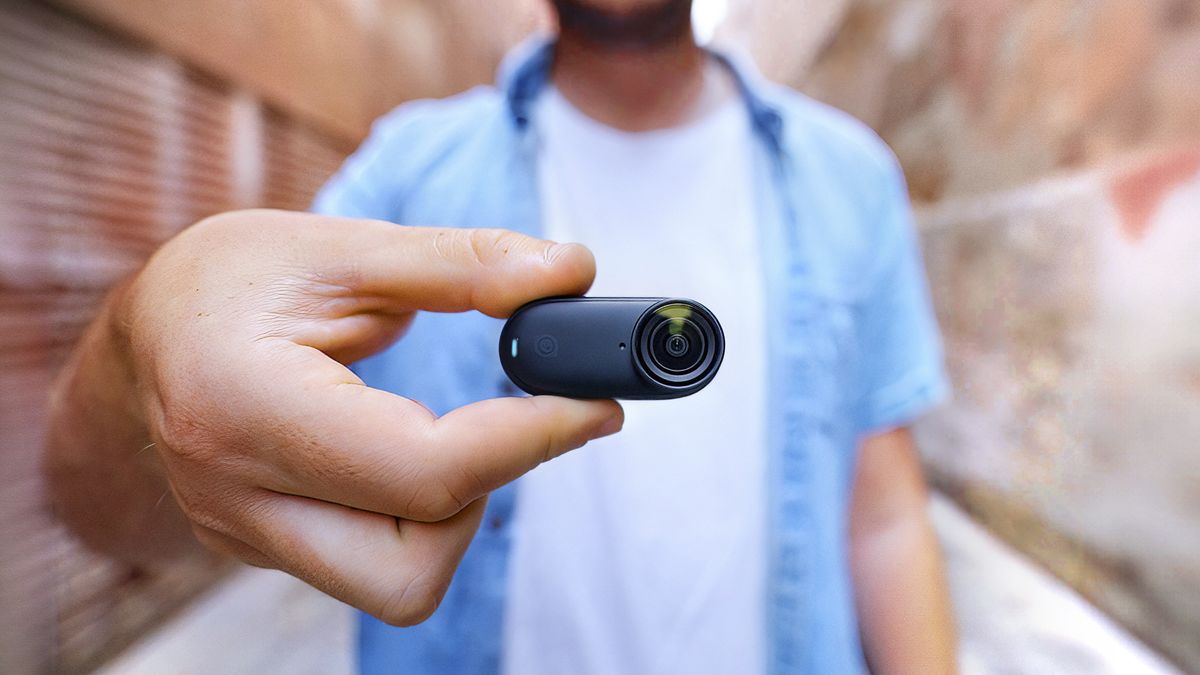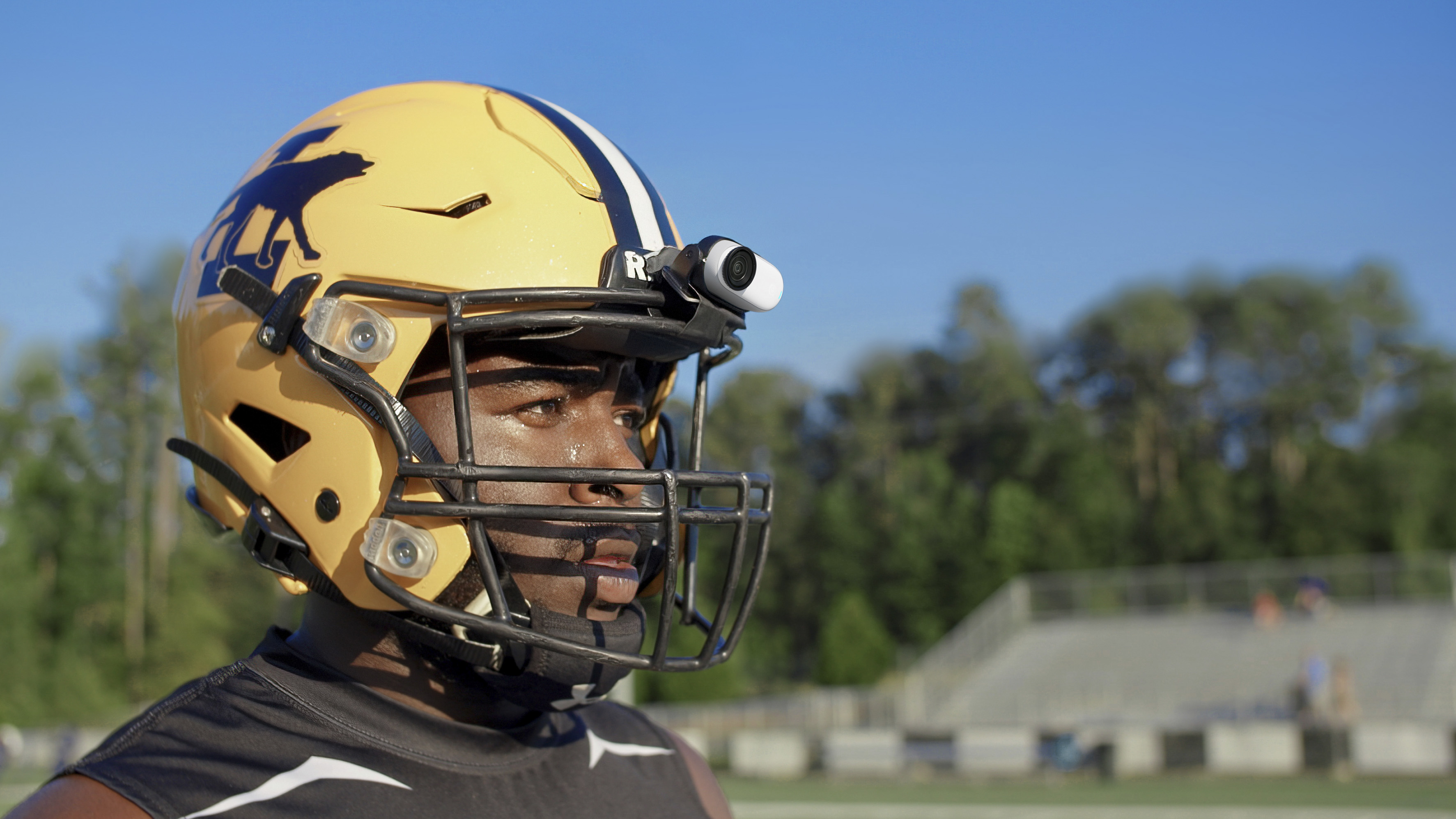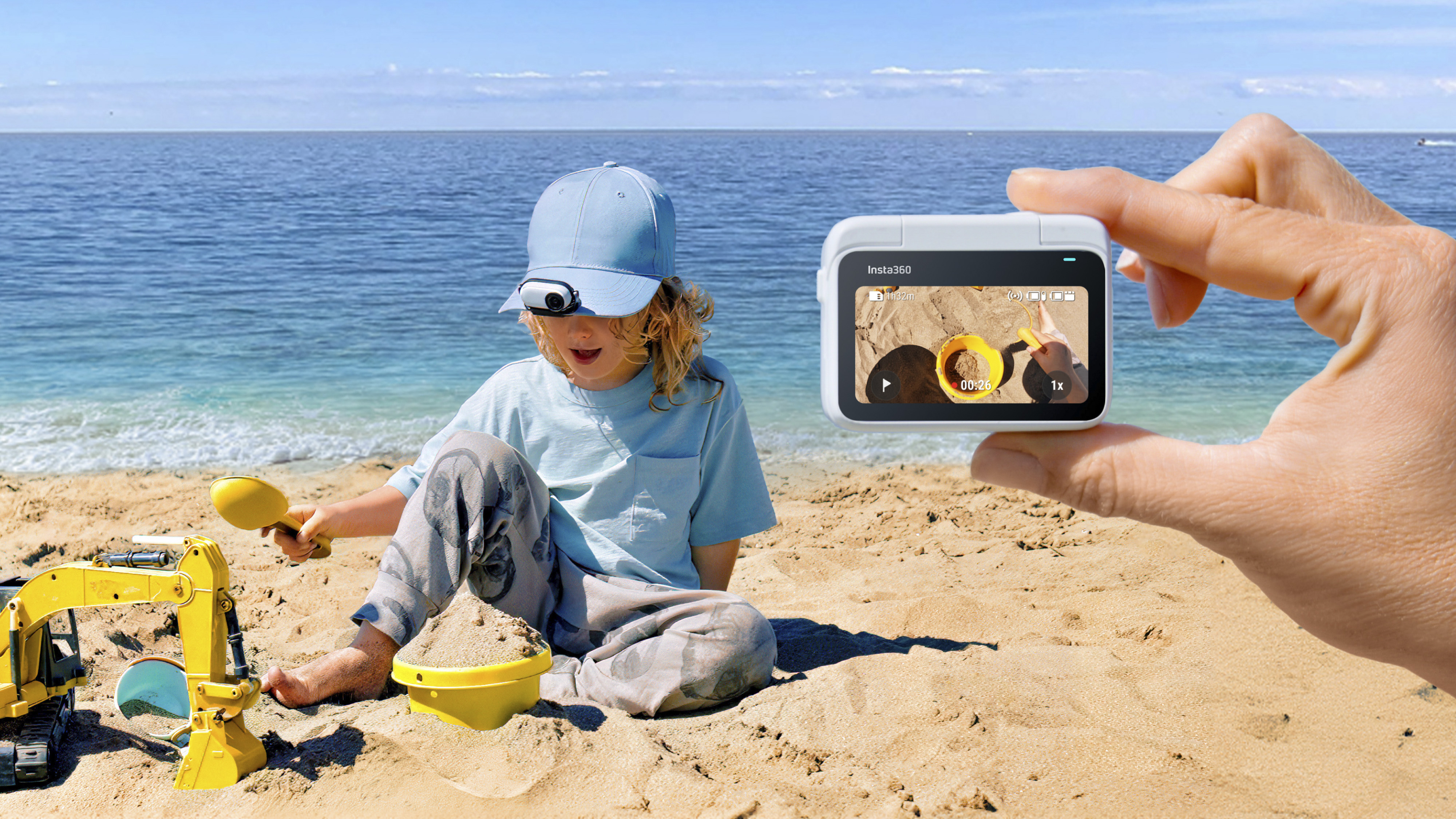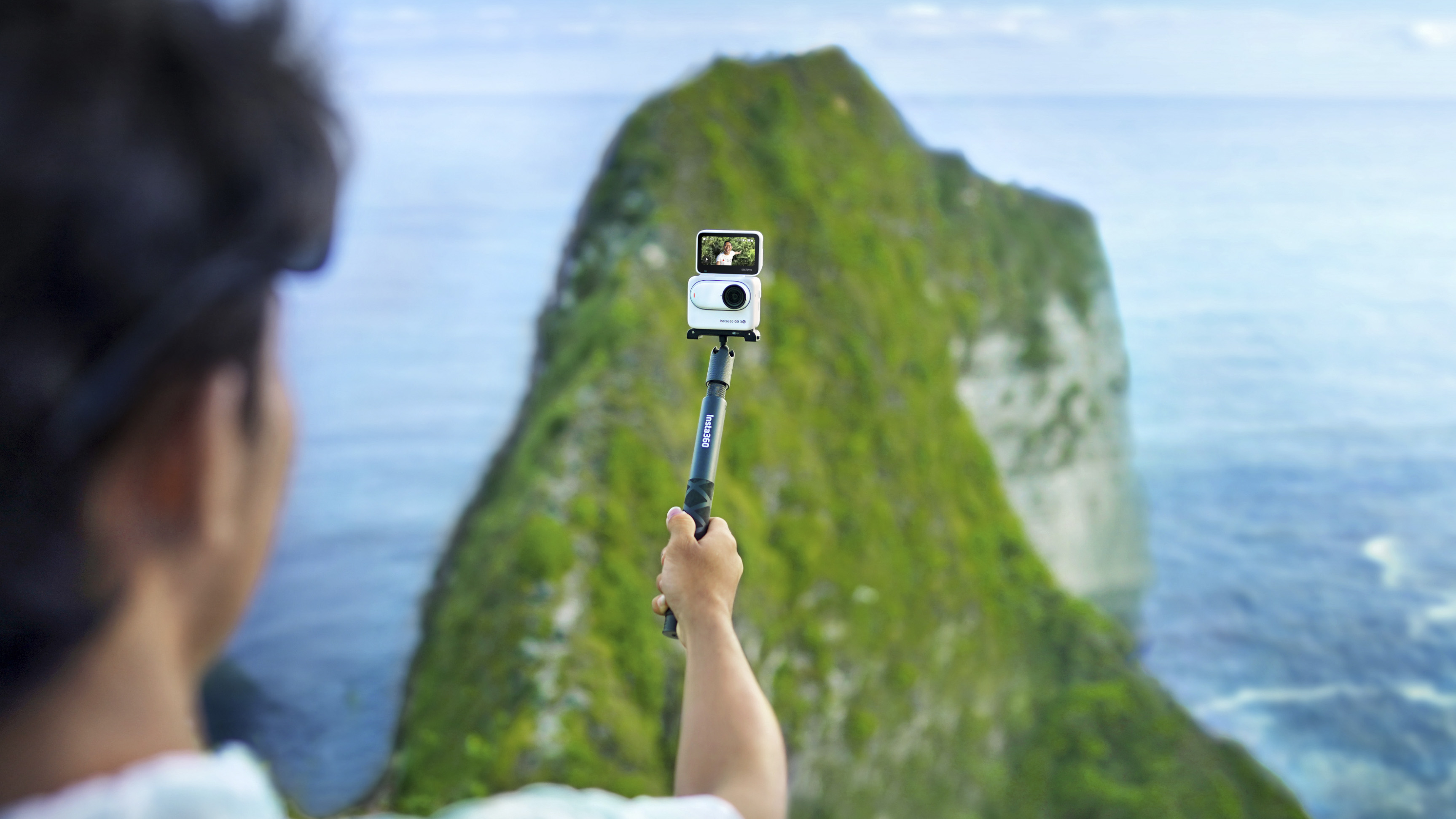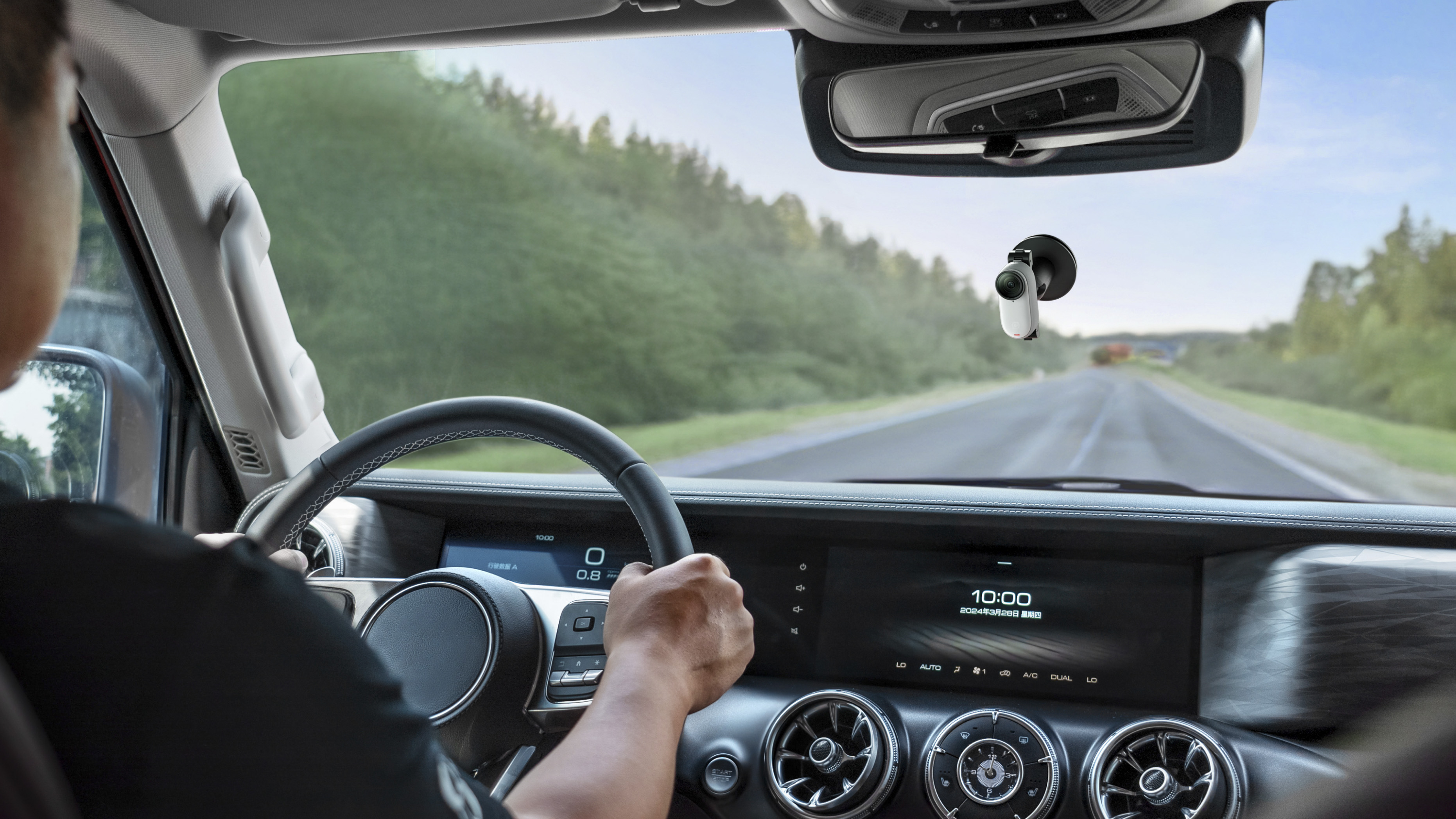Insta360 just delivered what many fans of its Go series of tiny action cams wanted the most: 4K video. In short, its latest model, the Go 3S, is the world’s smallest 4K camera. It updates the outgoing Go 3 (which is limited to 2.7K video) with a bump in resolution for video and photos, crucially without any notable size or weight increase.
My in-depth Insta360 Go 3S review is already live, and I’ve found it great fun to use. It enables you to capture unique POVs thanks to its tiny size and clever magnetic mount – you can put the fully best waterproof camera in places simply not possible with a phone or bulkier action camera alternatives like the DJI Osmo Action 4.
You can attach the Go 3S to a magnetic surface, a pet’s collar, a hat, your clothes or to smooth surfaces like a windscreen with one of the included accessories (see below) – there are almost endless possibilities for users of all ages.
The tiny Go 3S is an action camera with a difference, and versatility is the name of the game. It weighs just 1.38oz / 39.1g as a standalone camera, but can be purchased as a bundle with an Action Pod for $399.99 / £349.99 / AU$719.99 (64GB) or $429.99 / £369.99 / AU$769.99 (128GB). Pair the two elements together and you have a GoPro-style action camera, although the pod isn’t fully waterproof.
There are a few minor improvements over the Go 3, plus new features: it has double the waterproof rating, up to 33ft / 10m, improved slow-motion video now up to 200fps, and gesture control, which is handy for noisy environments when voice control is less likely to work.
It’s also equipped with Apple Find My, which makes sense given how small the Go 3S is, while the Garmin / Coros stats overlay on videos makes the Go 3S one of the best cameras for runners, cyclists and rowers, to name a few activities.
Otherwise, there’s not a lot else that’s new in the Go 3S – you can find out more in our review and in our Go 3S versus Go 3 article. And that’s okay with me – increasing the video resolution from 2.7K to 4K, and photos from 6.6MP to 12MP, has a positive knock-on effect for various shooting modes.
For example, more pixels makes the FreeFrame video mode extra useful. FreeFrame allows you to select your aspect ratio after shooting, and is a particularly handy option for people who share videos on multiple platforms like YouTube, Instagram and TikTok. More pixels ultimately gives you greater editing power for a single video clip.
And the Action Pod remains a useful element, being a decent flip-up touchscreen on which to compose your shots, and it even works remotely with the Go 3S removed.
Given that the width and height of the Go 3S is identical to the Go 3, it’s compatible with the same accessories, including the Action Pod. Those looking to upgrade from the Go 3 who already have the Action Pod can save some money by buying the Go 3S on its own, from $239.99 / £209.99 / AU$429.99.
The Go 3S isn’t without compromises: its image quality doesn’t quite compare to that from the best action cams like the GoPro Hero 12 Black, while battery life is inferior. However, it’ll enable you to get creative shots that just wouldn’t be possible with another camera.

